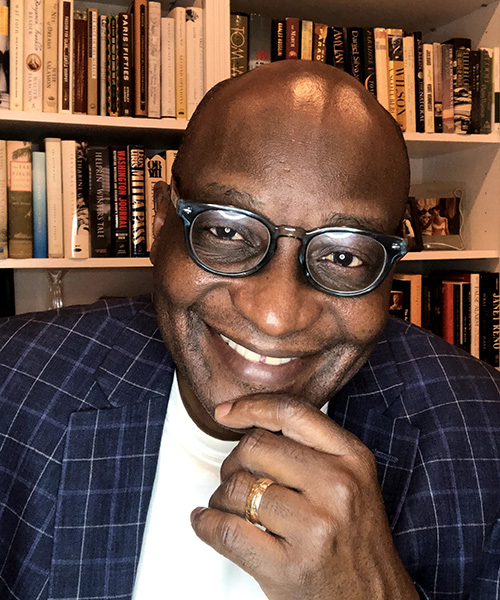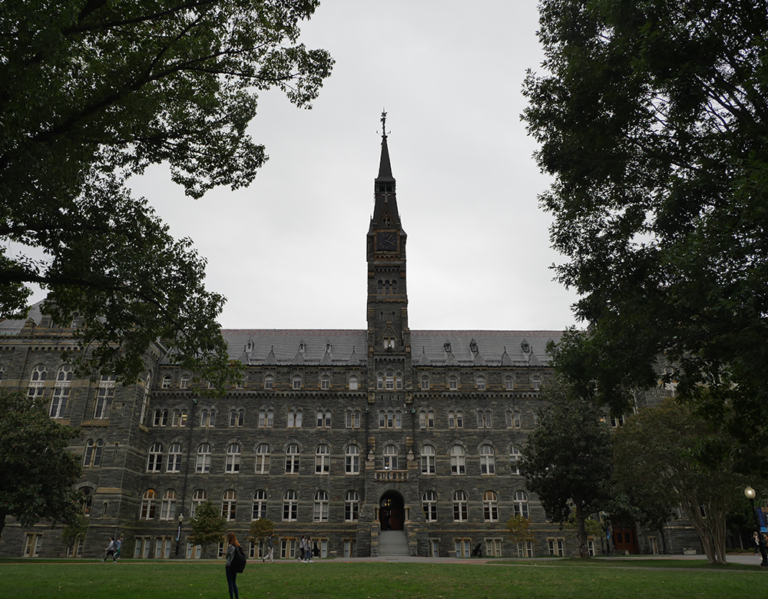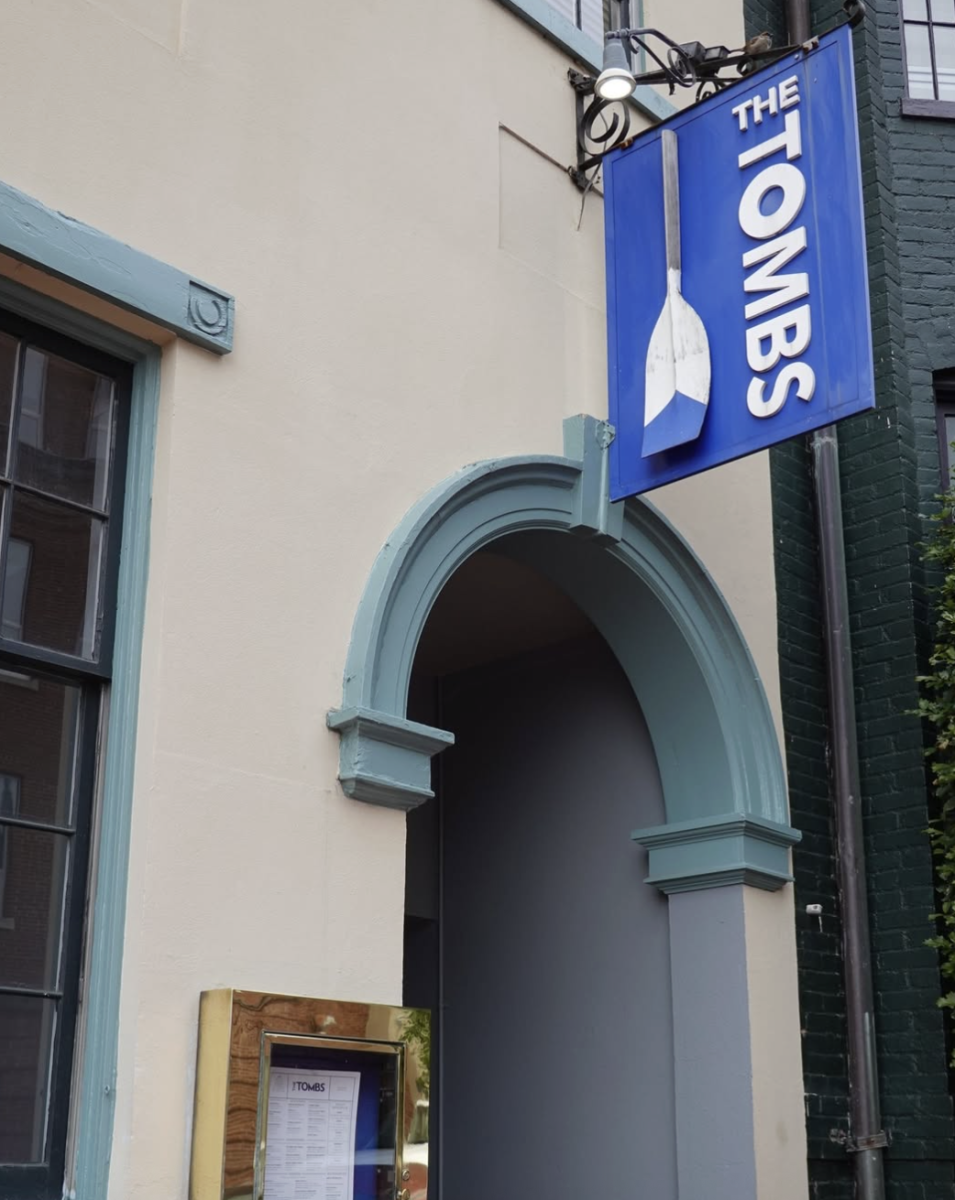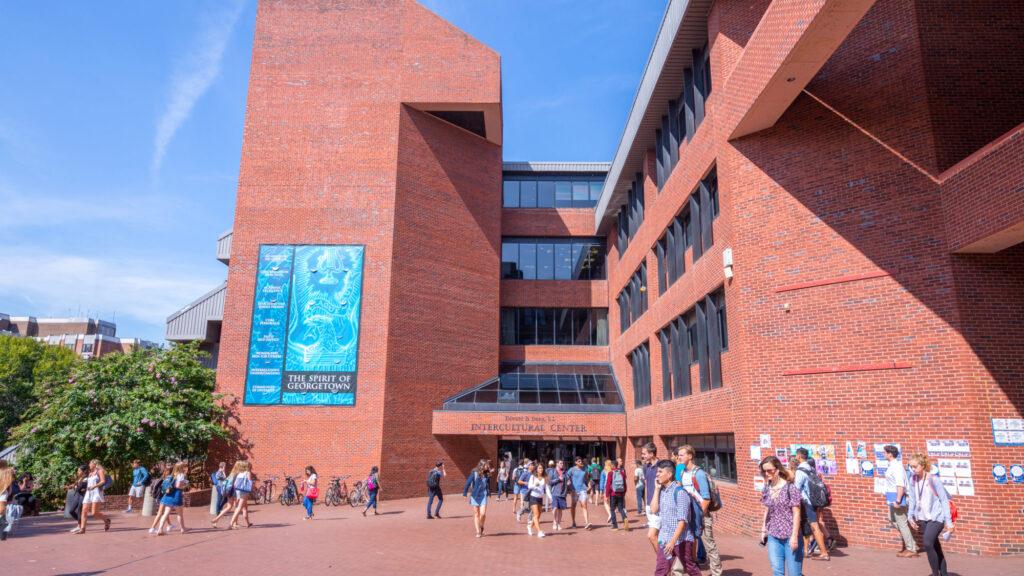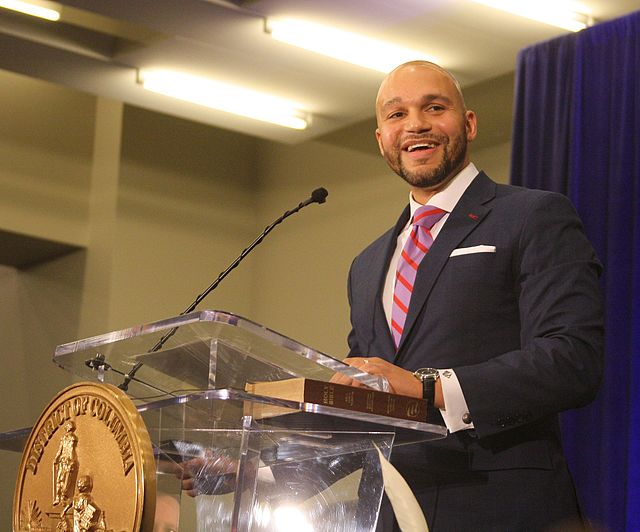An international correspondent for The New York Times received the Georgetown University Institute for the Study of Diplomacy’s (ISD) Edward Weintal Prize in a Nov. 13 ceremony.
Edward Wong, a former finalist for the Pulitzer Prize for his reporting in Baghdad during the Iraq War, is the latest recipient of the Weintal Prize, named in honor of the late Polish diplomat and journalist. Wong, the first winner named since 2016, joins the ranks of reporters including Jeffrey Goldberg, the editor-in-chief of The Atlantic, and Martha Raddatz, senior foreign affairs correspondent for ABC News.
Barbara Bodine, the director of the ISD, said the Weintal Prize seeks to honor journalists who promote transparency around the globe even when conditions prove difficult.
“Journalism’s core role is to shine a clear and bright light on events, actors and their actions, domestic and foreign,” Bodine said at the event. “They serve as the truth to power balance wheel, a role that does not always earn them the love and affection of those they report on.”
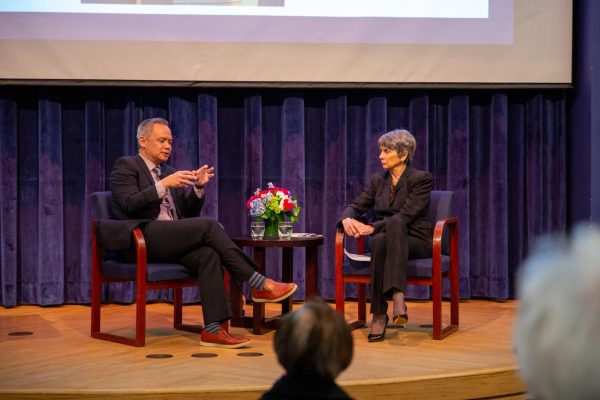
Wong, whose work includes traveling with Secretary of State Antony Blinken, said that despite evolving perceptions of journalists, initiatives like the Weintal Prize underscore the field’s continuing impact in holding others to account.
“I think what is great about this prize is that it reaffirms that there is a central role for journalism in public discourse in America,” Wong told The Hoya. “We’re at a moment when I think there are a lot of questions about the role of journalism, what its mission should be, whether it can hold power accountable and whether it can inform citizens about the world.”
Wong, who formerly served as New York Times Beijing bureau chief, said the impact of journalism has not faded over the years despite the job of reporting becoming increasingly dangerous in countries with autocratic governments.
“It is a difficult moment, I think, for reporters around the globe, and this started years ago,” Wong said. “I think that there’s been a general trend in many countries towards greater authoritarianism. I think that has put reporters at greater risk, especially when they’re reporting on those in power.”
“When I was in Iraq, I spent a night one time in Baghdad with a Shiite militia that was fighting American troops,” Wong added. “It was risky, but I also felt that it was important to try and understand their perspective on the war.”
During the Iraq War, Wong published stories that later earned him the Livingston Award, a prize for young journalists, and interviewed Iraqis impacted by the ongoing conflict. Foreign Policy magazine named his most recent project, a book titled “At the Edge of Empire,” one of its most anticipated books of the year for 2024.
Wong said the book, which explores his own family history in the context of Chinese political and economic development, has allowed him to reflect on his own experiences.
“I tried something new for the last six years, which was writing a book,” Wong said. “And I feel like for students, something like engaging in a long project that summarizes a lot of what they experience, the ideas that have arisen from their experiences and from the work is very rewarding.”
“I think that these long projects can bring a sense of fulfillment and also express something to the world that your shorter day-to-day, deadline-driven work doesn’t do,” Wong added.
Caleb Richmond (SFS ’25) said he attended the event because of his own interest in international reporting and felt that Wong’s work shows how diplomacy can inform journalism.
“As an SFS student studying journalism, I’ve often wondered how to bring together the seemingly divergent fields of foreign service and reporting,” Richmond wrote to The Hoya. “Mr. Wong showed that not only is it possible, but doing so can bring out the best in both.”
Wong said that as consumers increasingly choose non-written mediums like podcasts and videos for their sources of information, journalists must continue to seek out diverse sources and perspectives to enhance their work.
“Journalism is as important today as it was decades ago, maybe even more important, because of the fractured information space that we all live in,” Wong said. “I think that people who are smart, who are curious, who constantly want to find out more about the world and hear different voices will seek out different points of view, different perspectives and will want to listen to them and hear them out.”
Pew Research reported that in 2023, nearly one in three Americans over the age of 12 reported listening to a podcast in the past week, yet print media and radio consumption continue to trend downward.
Still, Wong said journalism will continue to play a key role in civil society as it connects readers and listeners of diverse backgrounds to essential facts and voices.
“I think that journalism is still, when it’s done right, a unifying force,” Wong said. “What journalism tries to present is some sort of unity that people can congregate around, like a central information space that people can congregate around and feel that they’re in this shared information environment.”





